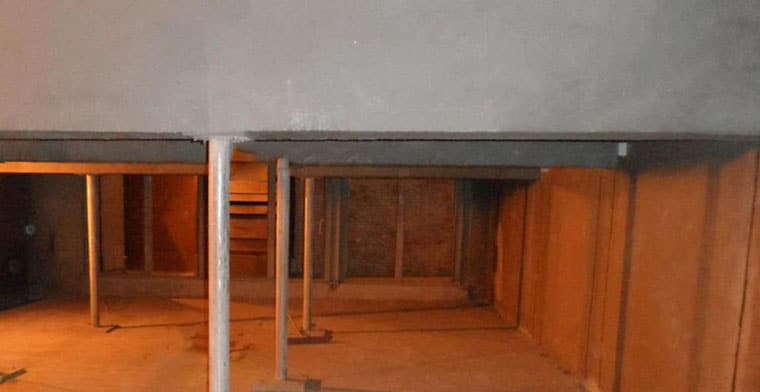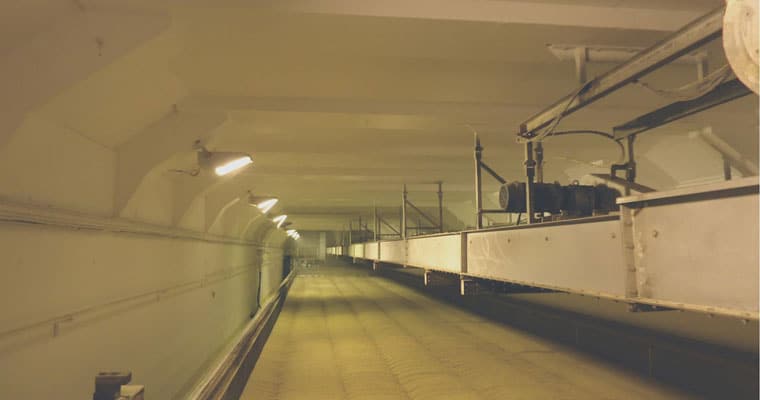
Repair & Protection of Reinforced Concrete Beams, Columns, Walls & Ceilings
Background
The Crisp Malting Group is the UK’s leading privately owned maltster, selling malted cereals to the world’s top brewers, distillers and food producers. The Group operates a total of five malting plants, including Mistley Maltings which is located on the Stour Estuary near to the Suffolk/Essex border in the village of Mistley. Mistley Maltings has three air conditioning spray chambers which extract water from the Stour Estuary, converting it into steam to treat the malt in the malting chambers above. The plant is operational 24 hours a day and produces 35,000 tonnes of malt per annum from barley, wheat and rye.
Each chamber has 16 reinforced concrete beams which had deteriorated significantly due to elevated chloride levels and extreme temperatures. The conditions are extremely aggressive as the weekly cycle comprises 3-4 days’ germination with conditions of 100% humidity, followed by 24 hours of kilning at temperatures up to 100°C and finally emptying and cleaning with temperatures back to ambient. All the beams were badly spalled, exposing corroded reinforcement. Concrete repairs had been carried out some 18 months earlier but these had failed to cope with the service conditions, therefore the client was seeking approved products with a proven track record of use in harsh environments. A protective coating had been applied in all three air conditioning spray rooms and malt box chambers but this had delaminated significantly.
The Solution
The client was seeking an independently approved system with a 20-year lifespan. A Flexcrete concrete repair solution was specified as the company’s products have an excellent track record of use in aggressive environments and are approved under Regulation 31(4)(a) of the Water Supply (Water Quality) Regulations. The reinforced concrete beams throughout the three chambers required hydro-demolition to remove the affected concrete and tonnes of defective concrete were removed daily. Steel Reinforcement Protector 841 was applied to the exposed re-bars to provide an alkaline, chloride resistant coating and Cemprotec MCI® 2020, a surface applied corrosion inhibitor, was rollered on to seek out and protect the re-bars from chloride attack. Monomix and Fastfill repair mortars were used for localised repairs to the beams, soffits, columns, wall panels and box walls before a spray application of Cementitious Coating 851, a waterborne, cementitious modified polymer coating which exhibits outstanding resistance to chlorides. Due to 851’s ease of use, the contractor was able to spray a complete malt box chamber in a single day. This was crucial as the schedule of works had to prove time effective so the processing plant could return to full service with minimal disruption. As the malt chamber ceilings had degraded, Biodex Wash was applied to neutralise fungal or bacterial spores and Bond Prime was applied to the prepared substrate prior to being coated. Biodex HB, a high build, vapour permeable biostatic coating which actively combats the growth of mould, yeasts, fungus and bacteria, was applied to the ceiling chambers. Biodex HB could be safely applied as it is waterborne, non-toxic, non-leaching and non-tainting, so there was no threat of contamination.
Client
Contractor
Click here to download the full case study

